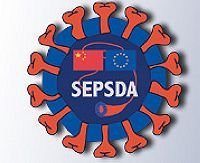FP6 project finds cure for SARS
A medicine currently used to treat schizophrenia has been found to be effective in inhibiting the coronavirus of the Severe Acute Respiratory Syndrome (SARS), according to a team of European and Chinese scientists. Cinanserin has been used to treat the mental illness since the 1970s, and has now been identified as a ready-to-use cure for SARS by the scientists from the Sixth Framework Programme (FP6), SEPSDA (Sino-European Project on SARS Diagnostic and Antivirals). 'Cinanserin could be directly prescribed to prevent the SARS disease or treat SARS patients if the epidemic mounts a comeback,' said Peter Kristensen of Denmark's University of Aarhus. The team of scientists from China, Denmark Germany and Poland looked into 15 drugs that appeared effective in preventing SARS, but after careful pathological studies, Cinanserin was selected as the only ready-to-use medicine against the virus. The 14 other medicinal solutions will have to go through lengthy animal tests before being used to treat humans, said Dr Kristensen. The antiviral activity of Cinanserin was evaluated in tissue samples containing the SARS virus and revealed a strong inhibition of coronavirus replication at nontoxic drug concentrations. 'These findings demonstrate that the old drug Cinanserin is an inhibitor of SARS-CoV replication, acting most likely via inhibition of the 3CL proteinase,' stated Dr Kristensen. SARS, an atypical highly contagious pneumonia, affected 32 countries in the period from February to June 2003. Some 8,400 people were infected and more than 800 died from the disease. Although SARS has now been contained, it is believed by scientists to be likely to re-emerge. According to the scientists from the SEPSDA project, the rapid transmission via aerosols and the high mortality rate (up to 15 per cent) make SARS a potential global threat. In the coming two years the SEPSDA project will aim to find some 50 chemical compounds to treat SARS.
Countries
China, Germany, Denmark, Poland



